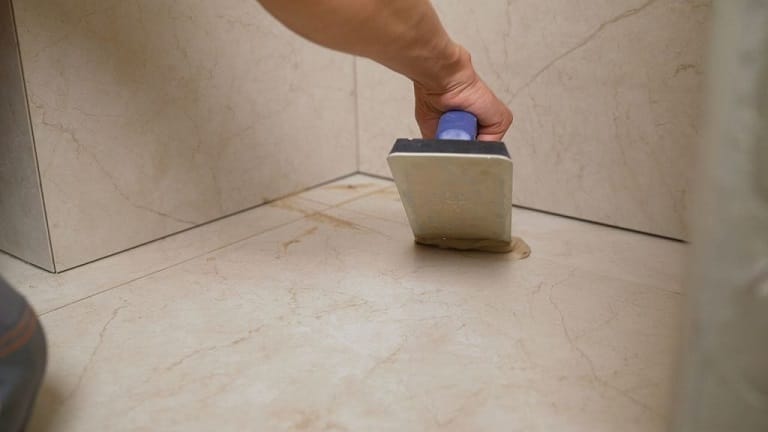Epoxy grout has become an increasingly popular alternative to the regular cement grout that is now fast fading from the market. Builders are showing a clear favorability towards this new product over its older cousin. So, what exactly is causing this shift, and what’s the reason epoxy grout is becoming a staple in tiling? Let’s explore these questions and find out more about the epoxy grout vs cement-based grout situation.
In the article, we will also answer the question Can you put epoxy over regular grout?
How’s One Product Different from the Other?
Below are some of how epoxy grout is different from regular cement grout.
- Grout is a cementitious mix, whereas epoxy grout is a combination of epoxy resin and a certain kind of filler powder. What difference does that make? The composition creates a big difference in the durability of grout alone, not to mention the stain problem that homeowners often complain about.
- Secondly, cement grout is prone to getting wet. Because it’s not water-proof, moisture passes through, and the grout absorbs it readily. Sometimes, along with moisture, stains end up in the grout making it discolored or stained. Imagine spilling tea or coffee on the floor. A cement grout will catch a stain as fast as you can blink. With epoxy grout, that problem is well sorted. Non-porous, it does not catch any stains at all.
- Another point of difference is the installation time. In this, the scale tips in favor of the regular grout. Builders find that cement grout is quicker to install as opposed to epoxy grout. Also, the post-installation cleaning is fast and less labor-intensive with grout than with epoxy grout. Therefore, considering the essential factors, epoxy grout makes a better tiling product than the original grout.
So Which Variety of Grout Is Better?
That is an easy question to answer. As a rule, the latter products are superior to their earlier versions. Just about that trend, epoxy grout is a better product to use for tiling than regular grout. However, that claim comes backed by numerous points of reason. Here are why epoxy grout is better than regular grout.
- One of the two areas in which epoxy grout has an advantage over regular grout is application. Where usual grout fails to offer any protection to the tiling, epoxy grout offers extra layer protection. That makes this product more versatile. That said, it can be in showers and kitchens where tiling the floor is tricky because of the low suitability of grout. Epoxy grout is water-proof, and that makes it the perfect product to use in shower and kitchen floors as well as in splash-back tiling. It helps water-proofing the floor, something that standard grout does not do.
- Another reason that settles the case in favor of epoxy grout is its stain-proof quality. Standard grout is great. However, it does not work where stains are concerned. Moreover, traditional grout is a stain magnet compared to epoxy grout that contains latex additives, the same thing that makes them water-proof. That makes them non-porous and therefore resistant to any kinds of stains.
- Maintenance is easy with epoxy grout because, unlike regular grout, this product does not demand sealing. So, if you are cleaning them, a little wipe with water and vinegar does the job fine. You don’t need to invest in expensive cleaners or even bleach if you don’t feel like it. Just a solution of vinegar and water works perfectly to get rid of any dirt and grime that might be sticking in the crevices.
Now, if your tiles have usual grout and you are contemplating yourself can you use epoxy grout over regular grout? the answer is yes. Just as long as you remove the grout a little bit with a tool, it’s good to go.

